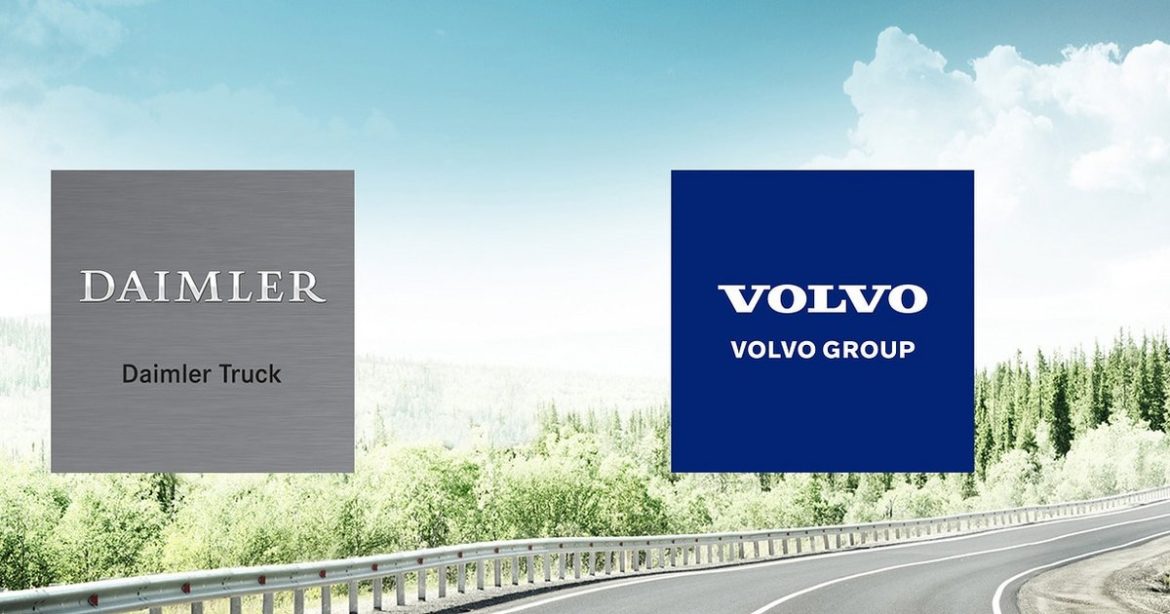Just as more electric Class 8 trucks hit the road, two major truck manufacturers have begun to produce hydrogen fuel cells at facilities in Germany. The new joint venture, named Cellcentric, is a partnership between Daimler Truck and Volvo Group.
Combined, these companies supply nearly 60% of the Class 8 trucks sold in the U.S.
The project will develop, produce, and distribute fuel cell systems on an industrial scale at plants in Esslingen, Baden-Wuerttemberg, and Stuttgart-Untertuerkheim.
“Fuel cell technology is a well-proven solution for CO2-neutral long-distance heavy-duty transportation. However, it has not yet been produced on an industrial scale, which is precisely the key to achieving economies of scale, optimizing the total cost of ownership (TCO), and putting Cellcentric in a solid competitive position in the long term,” says Lars Johansson, Chief Commercial Officer and Chief Organizational Officer of Cellcentric GmbH & Co. KG.
Esslingen Factory
The first factory in Esslingen opened in June with a ceremony attended by German political figures, businesspeople, and scientists. The factory employs more than 100 workers at a site with over 10,300 square meters of production, logistics, and office space.
The Esslingen opening will ultimately lead to the building of Europe’s largest fuel cell production factory in Wellheim.
“The opening of our pilot production facility in Esslingen today is not the end point of large-scale production, but rather the blueprint for the next step. In the coming years, we will continue to consistently drive forward the industrialization and scaling of production of fuel cell systems at the Weilheim site,” said Johansson.
Production Goals
Cellcentric’s first product, the BZA150 generation fuel cell, is nearing production with pilot versions already having been tested. The goal is to refine and reduce the size of fuel cells while making them more powerful. The NextGen cells are slated to begin production toward the end of this decade.
The NextGen fuel cell will have power over 350 kilowatts and is expected to provide fuel consumption savings of 20% more than the BZA150 generation cell. It is expected to have a lifespan of approximately 25,000 operating hours.
New Hydrogen Trucks
Both Daimler and Volvo are testing their new fuel cell trucks with mass production expected to get underway very soon. Daimler will soon test the Mercedes-Benz GenH2 Truck using Cellcentric fuel cells later this year. The trucks will move freight for Amazon, Air Products, Ineos, Holcim, and Wiedmann & Winz.
Concurrently, Daimler is working with industrial gas producer Linde to build a common refueling standard for hydrogen fuel cell trucks. The first such refueling station will open near Daimler’s manufacturing plant in Wörth am Rhein.
Future Plans
Daimler plans to roll out a full lineup of zero-emissions vehicles in Europe, the U.S., and Japan by 2039. Volvo will offer hydrogen fuel cell and hydrogen-powered internal combustion engines in its Class 8 trucks in a similar timeframe.
Volvo has already unveiled its first battery-electric prototype VNL at its plant in Dublin, Virginia. In addition, the company has tested its fuel cell trucks on roads and will be distributing test vehicles to customers by the end of next year.



